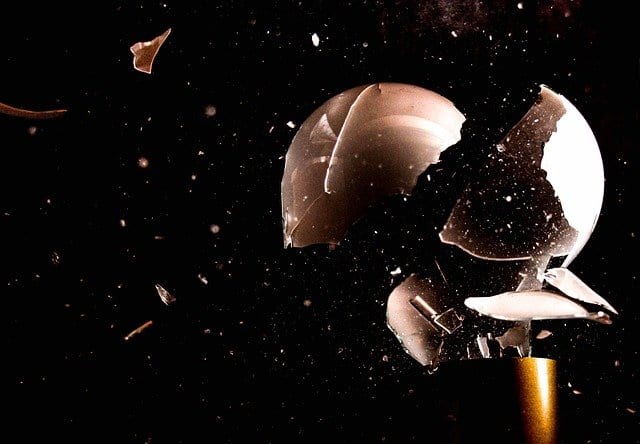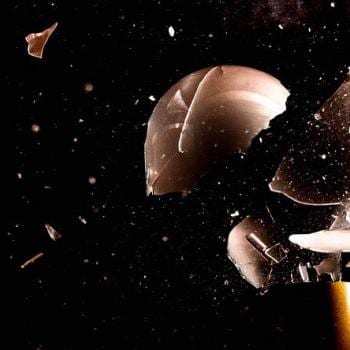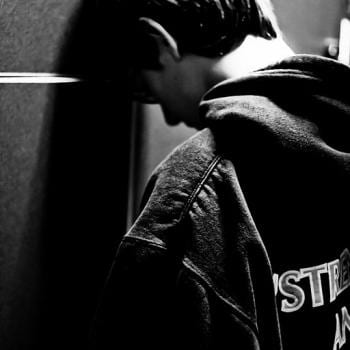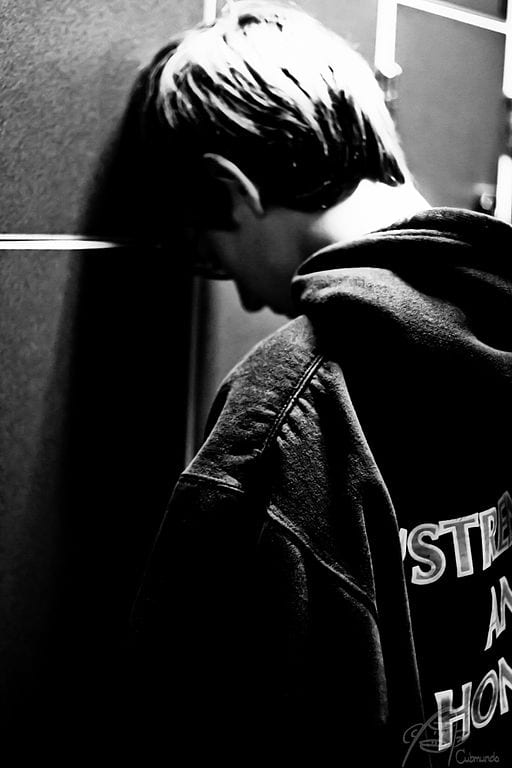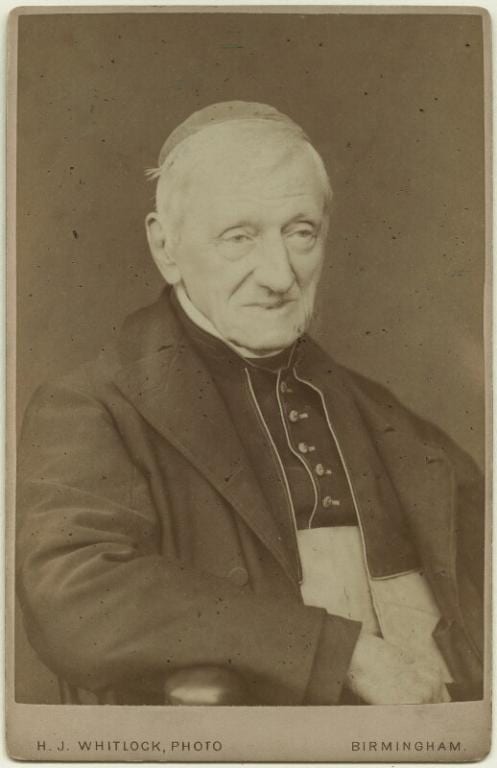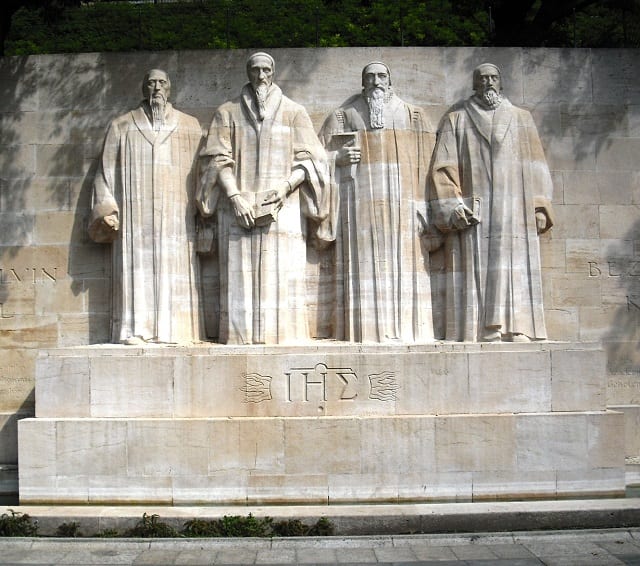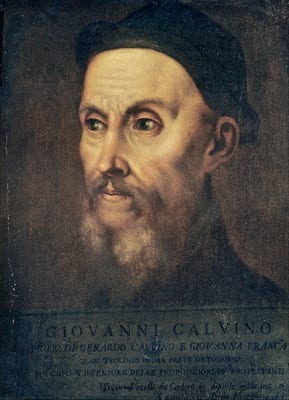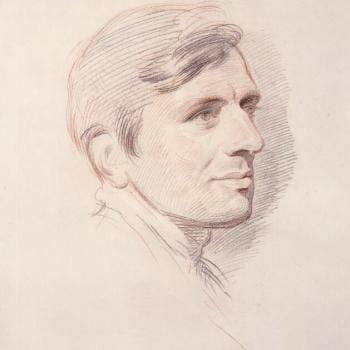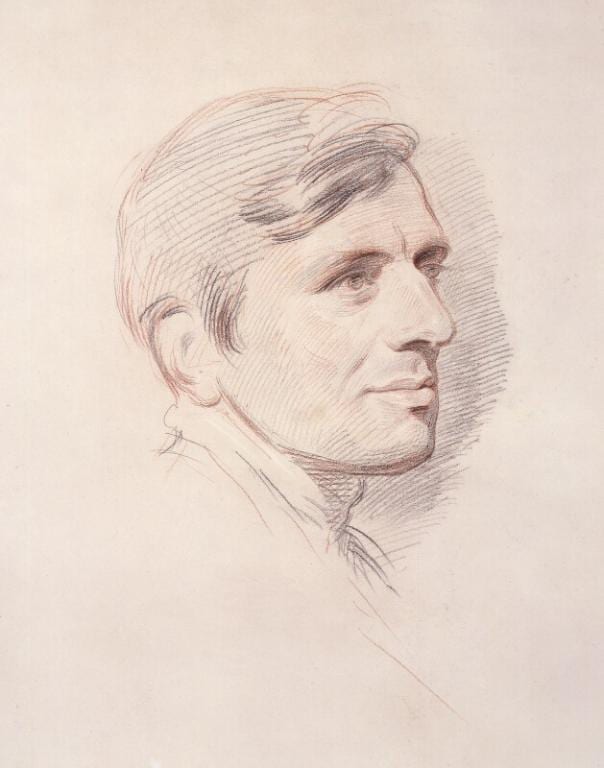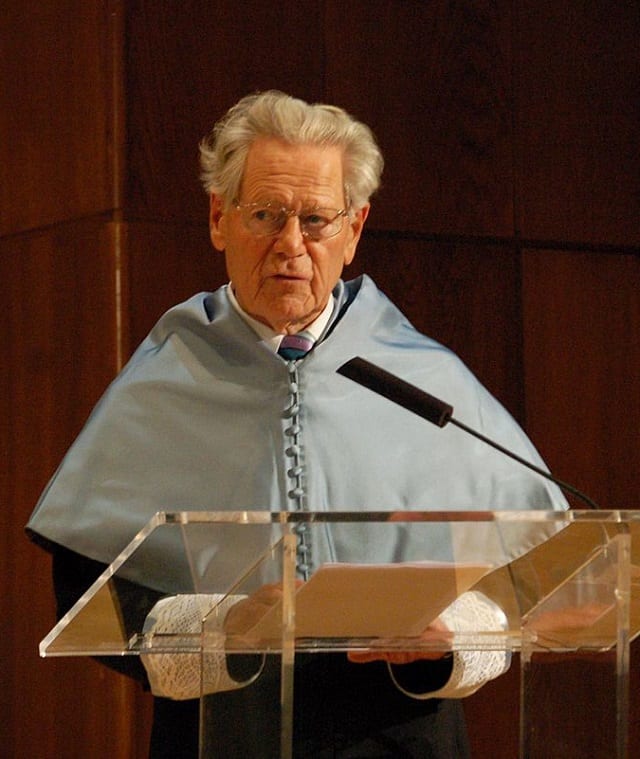
Dialogue with anti-Catholics James White (words in green), Eric Svendsen (blue), Andrew Webb (brown), and Phillip Johnson (purple). This series of exchanges took place on Bishop “Dr.” [???] James White’s sola Scriptura discussion list (which was by invitation only). It occurred between 23 May and 3 June 1996.
***
The Catholic unity of belief is itself a myth. Catholic apologists would like to paint the Catholic church as a monolithic organization where everyone agrees on every point of dogma. Nothing could be further from the truth. Protestants, they will argue, disagree on essential points of doctrine (this is my body is a favorite), which is the result of the private interpretations of the magisterium of one. Catholics everywhere all believe the same thing, which is the result of following an infallible interpreter. Is there such monolithic belief in Catholicism?
No, not Catholics, but the Catholic Church. We have the books, the dogmas, the decrees, the Councils, the current Catechism, the uniform, developed doctrinal history and Tradition. Everyone knows what the Catholic Church believes on any major topic. You know what we believe about Mary. You know our views on contraception, purgatory, the saints, the papacy, the Eucharist, etc. Everyone knows.
But if Küng, Curran, McBrien and their ilk can’t bring themselves to be honest with themselves and accept that this is what their Church holds, how is that a disproof of the oneness of Catholicism? It is none at all. They are simply straying sheep, heretical in spirit. We can say they are not Catholic theologians if we so choose. But you guys can only fight, disagree, and form a new sect when (inevitably) no resolution can be achieved. Is this not obvious? Why is it necessary to keep reiterating it? That is why I’ve called this argument “desperate,” and will continue to, as I’ve seen nothing to dissuade me from that opinion.
We can agree that any kind of division among Christians is unfortunate–I for one abhor denominationalism, primarily because of the pride associated with it. I have been writing against this kind of thing for over five years now.
Amen! Glory to God! Here is some transparent honesty I called for in my last post. Unfortunately you don’t go far enough:
Where does [apologist Geisler] get his authority? And who’s to decide what qualifies as a “secondary issue”?
And your proposed solution is to submit to Rome? All that would do is push the question back one more step–where does Rome get its authority–certainly not the Bible!
Yes. From Jesus and the Apostles, who in turn produced the Bible, which was canonized by the Catholic Church and preserved for 1120 years (from the Council of Carthage) before the first Protestant ever laid eyes or hands on it (unless you want to claim, with Dave Hunt, that the Albigensi and Cathari were evangelical Protestants). My new book A Biblical Defense of Catholicism has hundreds of biblical proofs of the Catholic position, whereas I’ve yet to hear a decent Protestant response to many verses I bring up, such as: what does “binding” and “loosing” and “retaining” sins mean, and what is Paul’s “baptisms for the dead”? Not to mention the divisions which we’ve been talking about. And sola Scriptura itself.
I’ll grant you that there is (very broadly speaking) a “mere Christianity” type of unity, but why should anyone accept this “lowest common denominator” unity? I want all the truth and nothing but the truth. Why should any Christian tolerate error (which we know from logical necessity is rampant within Protestantism), when all lies come from the father of lies (you know who)?
The sword cuts both ways here. I am completely certain that the Bible is without error, that Adam really lived, and that Jonah was really swallowed by a large sea creature. You on the other hand cannot claim certainty in these areas because your infallible interpreter has not clarified them for you.
Oh really?: “The Church . . . teaches that our first parents, Adam and Eve, were constituted in an original ‘state of holiness and justice.'” (Catechism of the Catholic Church, #375). Hard to have original sin without original parents, ain’t it? Fr. John Hardon, for example, of impeccable orthodoxy, friend of Pope Paul VI and catechist of Mother Teresa’s nuns, believes in Jonah and the whale:
An Israelite prophet . . . he lived in the 8th century B.C. . . . swallowed by a huge fish . . . (Pocket Catholic Dictionary, 208)
I’m sure I could find more official sources but I have neither the time, energy, desire, nor (probably) the proper books to do so right now. We have our liberals just like you do (after all, Protestantism produced liberalism in the first place, and now we are suffering for it, too. Gee, thanks for the favor).
Everyone knows what the Catholic Church believes on any major topic.
Oh really? What does the Catholic church believe about inerrancy, Dave? :)
According to Harold Lindsell, former editor of Christianity Today, in his book The Battle for the Bible, our view can stand up to the most rigorous of the Protestant denominations who uphold inerrancy (I had one of his quotes but I can’t find it right now). You can trot out your Catholic liberals if it makes you feel better, but this will not change the fact of what the Church believes.
I haven’t mentioned Kung or the others–I mentioned Brown (MacKenzie will also do). Let’s put the red herrings aside and talk about Brown’s view of inerrancy vs. your view. How does that difference display oneness in Catholicism? Which one of you is the straying sheep and heretic–Brown or you?
McKenzie is a borderline liberal. Brown is a liberal. I am not bound to his opinions. I am bound to the dogma of the Catholic Church. Where he differs from that he is being an unfaithful Catholic. You forget that we do not have a priesthood of theologians, commentators, and radio and TV preachers, as you do. We have higher authorities than that, so that we are not beholden to every fad, whim, fancy, and craze which happens to be current in theology. Individual theologians may be – but not the Church. And the new Catechism has spectacularly confirmed that once again. The liberals gave it everything they had to subvert the Church, but they are losing.
The tide has turned, and they will go the way of all heretical movements in history — either disappear or fight each other to either death or irrelevance and inconsequence. Fr. Stravinskas had a great line, saying that meetings of Catholic liberals are like “conferences in the gerontology ward.” That says it all, I think. Religious liberalism (like political) is going the way of the dinosaur. They had their day, and hour, and their fun. But God is not mocked, so they are becoming extinct, by the comet of John Paul II and a movement for orthodoxy which gains momentum by the hour.
This is exceedingly curious to me. You forget that [Bob Sungenis] is still a Catholic, and that is the whole point, whereas if I move from Calvinism to Arminianism, I am no longer a bona fide, “true,” “real,” “Reformation” Protestant, according to those who pride themselves as same. I swear you guys have blinders on when it comes to this “there are many factions in the Catholic Church, too” business.”
I find it curious that you don’t find it curious that you are violating the same principle of which you accuse us when you say that Raymond Brown is no longer a bona fide, “true,” “real” Catholic!
I don’t recall saying he wasn’t a Catholic, but that wherever he contradicts our dogmatic teaching, he is an inconsistent one, not in good faith, and intellectually dishonest to boot. You guys can only make that judgment within a denomination, but then cannot enforce it, and who’s to say that your denomination is right and the others wrong? This is not to say, either, that Brown has forsaken the Christian faith altogether.
That’s the difference. We acknowledge Protestants as Christian brothers, but you guys can’t even extend the same courtesy amongst yourselves, often reading us and your fellow “dissidents” (from us!) out of the faith altogether, as Luther did with Zwingli, and as my anonymous Calvinist “friend” did with me (judging my former allegiance in that case).
That’s the point I was trying to make, and you still haven’t told me what group Sungenis has joined which supposedly is the equivalent of forming a new sect (!!! absurd). This would only be true if it renounced Vatican II, the present pope, etc., in which case it would cease to be Catholic by definition, just as a person denouncing TULIP would, ipso facto, cease being a Calvinist.
David J. Palm [a Catholic apologist] writes:
We are getting a lot of mileage in this group out of what my friend Al Kresta calls the “So’s your Old Man,” argument. But, like the so-called “argument by assertion” it’s really no argument at all, just a way to try to shift burden.
This frankly appears to be nothing more than a ploy on your part to dodge the fact that these favorite Catholic arguments actually work against the Roman Catholic position.
I thought this was a group whose purpose was to discuss sola Scriptura! Answer our critiques of your position, and I promise I myself or one of my Catholic friends will start up a similar group in the future where all you guys can critique us. It seems, however, that the only Protestant answer to so many of our objections is simply to parrot, “but the Catholic Church . . .,” “but all those ignorant Catholics . . .”, etc. Sheer silliness. Keep these comments for another time, I say, and have the guts to defend your own deepest-held beliefs.
Don’t be like political liberals who are ashamed to label themselves accurately, and can only attack the Republicans rather than offer their own pro-active agenda. If your view(s) is (are) so superior to ours, why do we have to beg and plead on bended knee for you to spell it (them) out with theological and logical rigor and detail?!
I’ve heard recently that even John Stott and F. F. Bruce have questioned the existence of eternal hellfire. And they’re supposed to be “evangelicals”?!
Now, many examples could be cited (and have already been cited) to show that this particular “glass house” is marred with too many broken panes to be much of a refuge for Catholics. My personal favorite is this, from Karl Keating, writing in This Rock:
. . . on January 28, Mr. [Gerry] Matatics was asked, “Is there a current pope?” His answer: “I honestly can’t say.”
“There you go again,” as Reagan used to say. Here is a prime example of what I am talking about — and simply answered as usual, too. If Matatics denies there is a pope (he has denied this charge in a phone conversation to me), he is no longer a Catholic, by definition. It’s as simple as that. Now, on the other hand, if Stott or Bruce goes liberal on the doctrine of hell, who’s to say they are no longer “evangelical”?
I’ll grant you that 90% (?) of evangelicals believe in hell, but when all’s said and done, how do you guys determine orthodoxy? In this instance, it is a doctrine which you inherited from us, so it is a long-running, apostolic Tradition. But what of, say, contraception? Luther and Calvin thought it murder, and all Christians opposed it until 1930, but now it is a perfectly moral “choice” in the opinion of the vast majority of Protestant sects.
Thus, “orthodoxy” changed, and on the flimsiest of grounds (faddism and moral compromise). But virtually everything Protestants agree on are doctrines which are held in common with Catholics and Orthodox (Nicene Creed-type doctrines). Even sola fide is disbelieved in the strict sense within Methodism, Anglicanism, and some Lutherans. So “perspicuity” fails even there.
Our argument isn’t: “your liberals are worse than our liberals” (“your dad’s uglier than my dad . . .”), but rather: we have a self-consistent mechanism to determine orthodoxy and “bind and loose,” but you don’t. Thus, every Protestant becomes his own pope, in the final analysis. This is what your radical individualism reduces to. You have 600 million popes, but we acknowledge one, and everyone knows who he is.
It would seem to me that if this argument is damaging at all, it damages only the Roman Catholic position, because Protestants have said all along that the Scriptures alone are infallible.
Then why is James White so reluctant to tell me what it teaches on all the innumerable issues upon which Protestants disagree? If even your champion won’t (or can’t) do it, how can you expect me to be hoodwinked into believing that a “plowboy” can?!
Meanwhile, unless you’re prepared to defend all the dissident Roman Catholics, you really ought to drop this particular set of arguments against Protestantism.
I never have. I say, boot them all out, personally. But there is wisdom in a more cautious, patient approach. Look what happened when we were more stern: whole countries left the faith. Henry VIII falls into uncontrollable lust and bloodthirsty power politics; we censure him, and so lose England. I think the Catholic Church learned from experiences such as those (but just my own speculation, mind you). I said:
Why not boldly tell us, then, James [White], precisely what “the Apostles taught”? [he never did]
We have a sufficient and infallible record of the essentials of the apostolic message in Scripture. Precisely what they taught is recorded there.
Yeah? What is it then? I wait with baited breath for the answer . . .
But what you really seem to be seeking is an infallible interpretation of it in every point and every particular. And again, as has been pointed out before, even Roman Catholicism does not claim to be able to provide that.
At this point, I’d accept any interpretation. Again, I reiterate: at least Luther and Calvin had the strength of their convictions to excommunicate other Protestants for dissidence, because they truly believed in their own brand of Christianity. There is something to be said for that. In those days, Lutherans and Calvinists drowned Anabaptists for believing in adult baptism (not that it was right!), but now, baptism is winked at as “not central,” thus relegated to the dust-bin of relativism.
Thus, you guys went from one extreme to the other: baptism once meant everything; now it means virtually nothing (how could it, since you are divided into five camps?). So your sinful divisions lead to compromise on doctrine. This is the very essence of theological liberalism, I think.
On the other hand, Pope Paul VI stood up to almost the whole world in heroically reaffirming the ban on contraception in 1968, at the very height of both the sexual revolution, and the attempt of liberals within the Catholic Church to subvert it and remake it in their own image. Even Karl Barth praised him for that, shortly before his death.
What in Protestantism even remotely resembles such a courageous defiance of modernism?: Sproul, MacArthur and Ankerberg quixotically railing against the ECT statement? Today on the radio I heard Sproul and Ankerberg publicly discussing private meetings they had with Chuck Colson and J .I. Packer. This is not only atrocious ethics, but illustrates the absurdity of rampant evangelical chaos and in-fighting.
What in Protestantism even remotely resembles such a courageous defiance of modernism?
One might interpret the pope’s actions as arrogance, not courage. But how about the courage of Martin Luther and John Calvin to stand up against a highly corrupt ecclesial institution?
This would be a much more credible claim — all things being equal — if their own lives and churches weren’t so corrupt themselves.
We as evangelicals do hold to a certain set of beliefs. But we do not agree on all points–we freely admit that. So, what is your point?
That this is relativism, and indifferentism to far too many biblical doctrines.
That sola scriptura is impoverished in its ability to create dogmatic unity in every point? Granted. That sola scriptura creates chaos and anarchy? Not granted, because it’s not true.
Very well, then, I ask you again: how many sects does it take for you to question sola Scriptura? If there are no grounds whatsoever for falsifiability, then the belief itself is based on irrationality and blind faith, and thus unworthy of allegiance (besides its being unbiblical and self-defeating).
And what is your underlying assumption (and motivation) in asking this question? That if we simply abandon sola scriptura and embrace the Roman church, all of our disagreements will then suddenly disintegrate? . . . The only thing that we will have accomplished is the complete loss of the apostolic gospel!
“Complete loss”? Please elaborate on 1) the nature of this “apostolic gospel” and 2) How and when the Catholic Church “completely” lost it. Sad, Eric. Very sad.
Either demonstrate this abstract, ethereal notion of perspicuity concretely and practically, or cease using it if it has no content, and if it is only useful as a content-less slogan to bash Catholics with.
Again, Dave, I have to say what’s good for the goose is good for the gander. You want us to demonstrate perspicuity? Demonstrate your own first.
Ditto. The “old man” again. Double shame on you. You’re smarter than this.
You want us to drop the issue of Catholic division? Then drop your issue of Protestant division.
Oh how you wish I would do that! Wouldn’t that be nice, and convenient for you?
Actually, Dave, I have repeatedly asked you what the Catholic Church believes about biblical inerrancy, and you keep evading the issue.
Absolutely not. We believe it. Is that direct enough?
Others have asked you what the Catholic church officially teaches about the material sufficiency of Scripture and you keep evading that issue too. You want us to go to the official teaching of the Catholic magisterium to find out its teachings? Alright, we have done that; and they won’t tell us what to believe in these areas.
If both Trent and Vatican II opt for material sufficiency, isn’t that sufficient for you? Even James White can only refer to the “first draft” of Trent in his attempt to obfuscate the issue. First drafts don’t count for diddly squat. The whole purpose of a Council is to work through and hammer out issues. The final proclamations are the bottom line. Isn’t that obvious? But I am no expert in this particular area. I myself see it as largely a moot point, as I stated in a very early post. It is just another instance of the desperate Protestant utilization of picayune minutiae in order to justify its own inadequacies.
As I have maintained from the outset, sola scriptura did not develop in a vacuum, nor can it be debated in one. The reason sola scriptura emerged in the first place was because the Roman system was deficient.
Rather, it was that Luther refused to recant his heresy (which goes back to at least 1515, two years before his fabled 95 Theses and the resultant controversy). Having become intransigent, he had little choice. Once one jettisons the unbroken Tradition of the Christian (Catholic) Church, there is no other real alternative but “Bible Alone,” hence sola Scriptura arose. In effect Luther made himself an infallible “Super-Pope,” as did Calvin and Zwingli, and so forth . . .
So infallibility simply moved from Councils, the Church, the pope, and Tradition, to individual men who were heretics according to all previous Christian precedent. Self-proclaimed and self-anointed “Reformers,” most of whom broke solemn vows to God, which, biblically, is a very serious sin. Why should they have been believed rather than the other alternative at that time? And then you start to examine their lives, too . . . :-(, and if you’re Protestant this ought to give you big-time pause.
I’m still waiting for you to tell us what this mysterious “apostolic message” is. According to this curious illogic, one can “know” what the message is, without the Catholic Church, but they can’t tell me what it is, what it consists of!
Here is at least part of the apostolic message. “Christ died for our sins and rose again on the third day according to tradition” (oops, I mean the Scriptures :). He is our “great God and Savior,” and “whoever believes in him is not condemned but has passed from death to life.” “Having been justified by his grace we have peace with God.” “He who has the Son has life; he who does not have the Son does not have life.”
All that the Father gives to Jesus will come to Jesus, and he will certainly not drive them away. In fact, they cannot even drive themselves away since of all the Father has given Him he shall lose none. Is this perspicuous enough for you, or shall we have Rome interpret it for us?
We agree with all this, excepting eternal security. This is a start, though. Why then don’t you tell me what the Apostles believed concerning my 18 points?
You guys need to defend your own position without recourse to Catholics at all.
Actually, we don’t need to defend it at all until someone attacks it. But the minute someone attacks it then that person had better be able to supply us with a superior system.
We have, and we can.
Our argument isn’t: “your liberals are worse than our liberals” (“your dad’s uglier than my dad . . .”), but rather: we have a self-consistent mechanism to determine orthodoxy and “bind and loose,” but you don’t. Thus, every Protestant becomes his own pope, in the final analysis.
Ah, there we go. Let’s try to put this one to bed. You have a mechanism to determine orthodoxy. I’ll leave self-consistent out at the moment, since historically that’s not the case.
Even if I were to grant that we have been inconsistent (which ain’t likely), our record on consistency is sure a heck of a lot better than yers! As for liberals, there are “formal” Catholics, who have forsaken the teachings of the Catholic Church; hence they are no longer “Catholics” in essence, since the system is defined in large part by the willingness to submit oneself to the Church and its Tradition and dogmas and disciplinary regulations (Lent, etc.).
If you insist, I could use the terms “good” Catholic, “observant” Catholic, “orthodox” Catholic, Catholic in good standing, “magisterial” Catholic. I think you know how I am defining the term by now. But in any event, what a Catholic should believe is abundantly clear, no matter what McBrien et al say.
A person denying the Trinity, or the resurrection, or even eternal punishment in hell, would not be a member of the Phoenix Reformed Baptist Church, I can assure you.
You can be proud that your particular congregation cares about doctrine, but don’t try to say that this is common in evangelicalism. I know personally of two churches — Lutheran and Baptist, where a person who denied the Trinity was either accepted as a member, or would have been, if he had tried, on the basis of (in effect): “he’s following Jesus, who cares about the technicalities.”
If “the narrower = better” is true, then, as Eric Svendsen and I pointed out earlier, the JW’s have you beaten by a long shot. The list of “musts” they can put up makes yours look pretty weak in comparison. Is it a valid argument for them to compare the wideness of theological views in Rome with the pencil-thin spectrum amongst JW’s? I’d say it isn’t, but I don’t see how you can be consistent in your position and yet disagree.
If you think an irrationalist, deliberately dishonest, Arian heresy has a theological and historical pedigree and rationale to match that of the Catholic Church, I’d love to see you make that case. It’s not the number of requirements that is the key, but the fact that they can be backed up by apostolic Tradition and the history of doctrine, which is the crucial distinction (St. Vincent’s famous dictum).
I and David Palm have explained the qualitative difference between the two scenarios many times, & so I desist. Again I ask: how many sects are necessary before you start to question your system (no ones’ answered this yet, either)? I’ve thrown out the figure 240,000 to no avail. What about 2,400,000 then? Would that be enough? As many sects as there are people in Philadelphia?
Respectfully Dave, your argument only holds water if we presuppose that Catholicism is a universally homogeneous body.
Yes, I do presuppose this, because it is true. Why? Because our “books” (Councils, Catechisms, papal encyclicals, and in a derivative sense, apologetics works) are clear as to what the Catholic Church believes, as are yours within particular denominations (e.g., Westminster Confession, Augsburg Confession, or perhaps Calvin’s Institutes). This is the only reasonable way we can judge any religious belief-system. Even Norman Geisler knows what the Catholic Church believes, in his new book comparing our two outlooks. Why can’t you?
No one has yet answered my plea as to what would constitute falsifiability of your system of sola Scriptura (particularly the perspicuity aspect). You are now added to that list, since you are silent as well.
I have had the privilege of bopping around the world a few times and seen differences between Catholic churches that make the differences between most orthodox Protestant Churches pale to insignificance. For instance, one only need compare how Catholicism is practiced in Ann Arbor, Manila, San Francisco, San Salvador, and Mexico City to realize that Catholicism is splintered into countless sub-divisions that divide along cultural, liberal, charismatic, conservative, evangelical, fundamentalist, Marxist, (etc. ad infinitum).
I couldn’t care less. Liberals are the scourge of the earth, and we are now plagued with them thanks to Protestant liberalism which bequeathed them to us. Why you think this disproves the validity of our system I have not the slightest idea. For example, theological liberalism has been condemned very strongly, especially in some papal encyclicals. Likewise liberation theology, whereas the charismatic movement has been blessed by popes.
There is no conflict in the system, only in the hypocritical practice of individuals. Liberals wreak havoc on the Church that they profess to be a part of (most are in mortal sin and in danger of hell-fire by that same Church’s stated criteria). But things are improving slowly in this regard. The Church has seen very rough periods many times before, but it always recovers. That is the cogent point, and is one of innumerable reasons why I think the Catholic Church is uniquely the Church which Christ founded, and why I converted to it in 1991.
Catholicism has grown increasingly accustomed to the pretense that people who espouse liberation theology, charismatic evangelism, modified process theology, feminist theology, or open Mariolatry are all members of the same confessional body (provided, of course, they don’t get too public about their particular “spin”).
What do you mean by “Catholicism”? Again, liberation theology, process theology, feminism, Mariolatry have all been condemned, and the charismatic movement accepted. The only problem are liberal priests and bishops who tolerate such clear divergences from Catholic thought and official, dogmatic Catholicism. Protestants, on the other hand, institutionalize differences (read, relativism, and hence error) and end up calling evil good (I need not name the myriad instances of that yet again). This is why I maintain that this whole line of argument is a false and desperate analogy, and I’ve seen nothing to change my opinion.
How is this qualitatively different from having denominations?
Just explained that! :-)
If adherence to the New Catechism is the standard, when are you going to start the ‘weeding’ process?
It proceeds. One example is the bishop in Nebraska. But the Catechism itself is an excellent case in point. Anyone who can read, and anyone who trusts the pope for the purpose of defining the Catholic faith, can scarcely have any excuse for not knowing what the Catholic Church teaches anymore. Nor any excuse for rebelling against it and attempting to subvert it.
(you might want to start with people with those irritating “Let the Lasses Serve Masses!” bumper stickers and the move on to “Another Pro-Choice Catholic”)?
Sounds great! Off with their heads! :-) Here again, the teaching is clear. Everybody (“Catholic” liberals, above all) knows that the Catholic Church is firmly against abortion and women priests. There is no mystery to that whatsoever. Here we have pure intellectual dishonesty, deceit, rebelliousness, and sin, pure and simple. But what do you guys do, in contrast? Practically every liberal denomination espouses abortion, some evangelical ones waffle on it, and even Billy Graham accepts the “rape and incest” exceptions. I was involved in the Rescue movement, and evangelicals couldn’t even agree to that, while the Catholic Church accepted it, and bishops, such as Austin Vaughan of New York, even participated in it (I sat next to him once at a rally – I was still Protestant at the time).
Of course, the Anglicans have women priests and even sodomite priests now, and several denominations accept women pastors. So you institutionalize and rationalize sin, whereas all we have are renegade individuals who violate the clear teaching of their own Church. This is a world of difference, and I can’t comprehend how anyone of whatever belief could fail to see the distinction. So my argument holds, very much so.
Here I am not appealing to a “so’s yer old man” argument but rather pointing out that your own uniformity of focus is highly illusory.
I disagree, based on the above reasoning.
For me to leap to the conclusion that because thousands of Catholic churches get their own doctrine wrong that no Catholic churches get it right is as patently illogical as assuming that because so many Protestants have deviated from scripture that none of them have stayed the course.
Precisely. This is exactly why we can only judge any group by examining their official doctrines. I won’t define my Church by the deviants and neither should you.
Reformed Christians do not claim that any mere man is infallible and even Calvin stated that the best of theologians is only right 80% of the time. Only scripture is an inerrant rule and guide, and a Church’s doctrinal “correctness” should be measured by it’s adherence to this final absolute standard.
Yes, but if you can’t figure out what that standard is amongst yourselves, what good is it? You can’t replace papal infallibility with paper infallibility.
***
Photo credit: Hans Küng (1-27-11; UNED Universidad Nacional de Educación a Distancia) [Wikimedia Commons / Creative Commons Attribution 2.0 Generic license]
***
